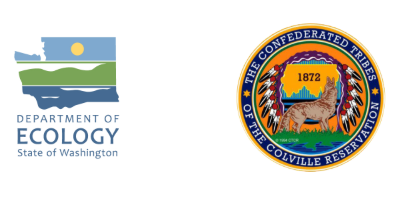The Confederated Tribes of the Colville Reservation and the Washington Department of Ecology announced a new partnership that will reduce air pollution and improve overall health for those living on Tribal lands and in nearby communities.
The Colville Tribes and Ecology recently signed a memorandum of understanding that allows air quality managers to work together to monitor and mitigate air pollution. This is especially important for tiny particles of smoke and soot called PM2.5 (particle pollution less than 2.5 microns), that can spike during summer wildfire season or winter wood stove season.
This work will help the Colville Tribes meet the requirements of the federal Clean Air Act and support the Tribal mandate to safeguard natural resources for future generations. It will also help the state meet the direction from Washington’s Climate Commitment Act to reduce air pollution.
Air pollution is not contained by a boundary on a map
"While the Colville Reservation is very rural, we can still experience problems with poor air quality, especially during fire season or from wood burning stoves in the winter,” said Jarred-Michael Erickson, chairman of the Confederated Tribes of the Colville Reservation. “We are pleased to partner with Washington's Department of Ecology to monitor air quality problems and to mitigate impacts of air pollution. We all want to breathe clean air."
Improving air quality monitoring and developing programs to reduce air pollution will ultimately mean healthier communities, said Ecology Director Casey Sixkiller.
“I’m excited about this partnership,” Sixkiller said. “It will make it easier for us to work together, and to combine and expand our efforts to improve air quality. It’s a significant investment in cleaner air — and that benefits everyone in the region.”
Scope of work
The partnership will allow Ecology’s Air Quality program new access points to measure and monitor air quality in and around the sovereign lands of the Colville Tribes. Better monitoring will help both the Colville Tribes and Washington meet federal air quality standards, analyze regional trends in air pollution, and support communities where air pollution has impacted public health. The Colville Tribes will also become eligible for various grant programs that can reduce the levels of criteria air pollutants like PM2.5.



